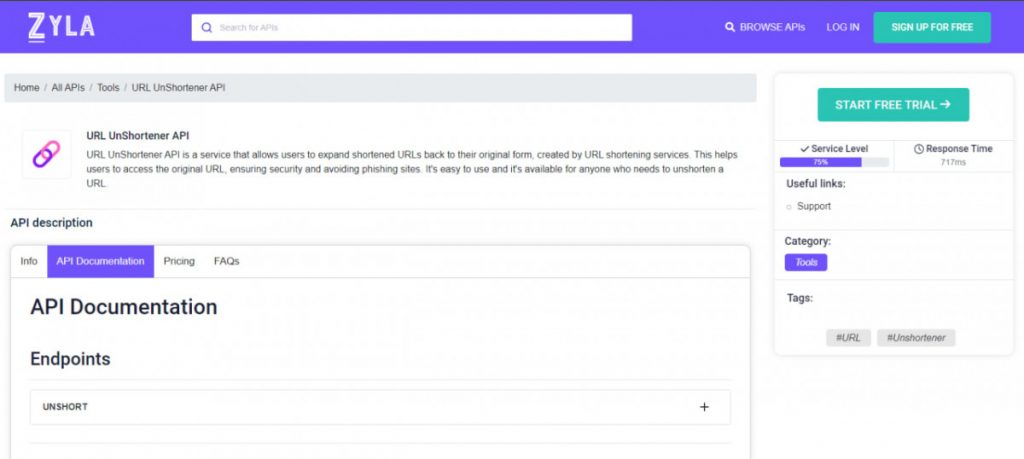In the vast landscape of the internet, URLs play a crucial role in accessing and sharing information. However, the rise of URL-shortening services has introduced a new challenge when it comes to online security. Phishing attacks, in particular, have become a significant concern for both individuals and organizations. This kind of attack often hinges on the use of shortened URLs to deceive unsuspecting users into clicking on harmful links, leading to stolen personal information, financial loss, or malware infections.
This is where APIs come into play. These application programming interfaces can allow users to expand shortened URLs and reveal their full length before visiting them. By accessing the right API, users can make informed decisions about the safety of the links they encounter. APIs can analyze the provided shortened URL and retrieve the original destination URL, giving users a glimpse into where the link will take them.
To combat this threat and enhance web safety, URL UnShortener API has emerged as a valuable tool.

About URL UnShortener API And Its Uses
The integration of URL UnShortener API into search engines can significantly enhance web safety on a broader scale. Search engines serve as gateways to the internet, processing countless queries daily. By incorporating URL unshortening capabilities directly into search engine algorithms, users would be protected from potential phishing attacks without the need for third-party browser extensions or plugins.
URL UnShortener API is a powerful tool in the fight against phishing attacks. It allows users to expand shortened URLs and view the complete web address before clicking on them. By offering this transparency, users gain insight into where a link will take them, enabling them to make informed decisions about their online interactions. URL UnShortener API acts as a vital layer of defense against malicious links, enhancing online security and protecting users from falling victim to phishing attempts.
The utilization of URL UnShortener API brings several benefits to the digital landscape. Firstly, it enhances user trust by providing increased transparency and ensuring the integrity of online interactions. By mitigating the risk of falling victim to phishing attacks, users can navigate the web with confidence. Secondly, the integration of this API into search engines promotes a safer online environment, reducing the chances of accidental exposure to malicious content.
How Does This API Work?
URL UnShortener API is very simple to use. The API comes with a prompt in a request body where the desired shortened URL is inserted, which looks like this:
{
"url": "https://cutt.ly/hwrCi5YZ"
}
And after the call is made, and the full URL is displayed:
{
"status": true,
"originUrl": "https://en.wikipedia.org/wiki/Cyathus"
}
How Can I Get This API?
The rise of URL shortening services has presented new opportunities for phishing attacks, jeopardizing web safety. However, the integration of URL UnShortener API, particularly within search engines, can serve as a vital anti-phishing measure. By allowing users to view the full length of shortened URLs and assessing their safety, this API empowers individuals to make informed decisions while browsing the web.
With further advancements in technology and continuous refinement, URL UnShortener API have the potential to play a significant role in protecting users from phishing scams and creating a safer online environment for all. You can try this useful tool by following these instructions:

1- Go to www.zylalabs.com and search for “URL UnShortener API“, then click on the “Start Free Trial” button to start using the API.
2- Register and choose the plan that suits you best, you can cancel it whenever you want, even at the end of the free trial.
3- Once you find the endpoint you need, make the API call by clicking the “run” button and you will see the results on your screen. You can also choose the programming language of your choice and the response will be given in the friendly JSON format.

